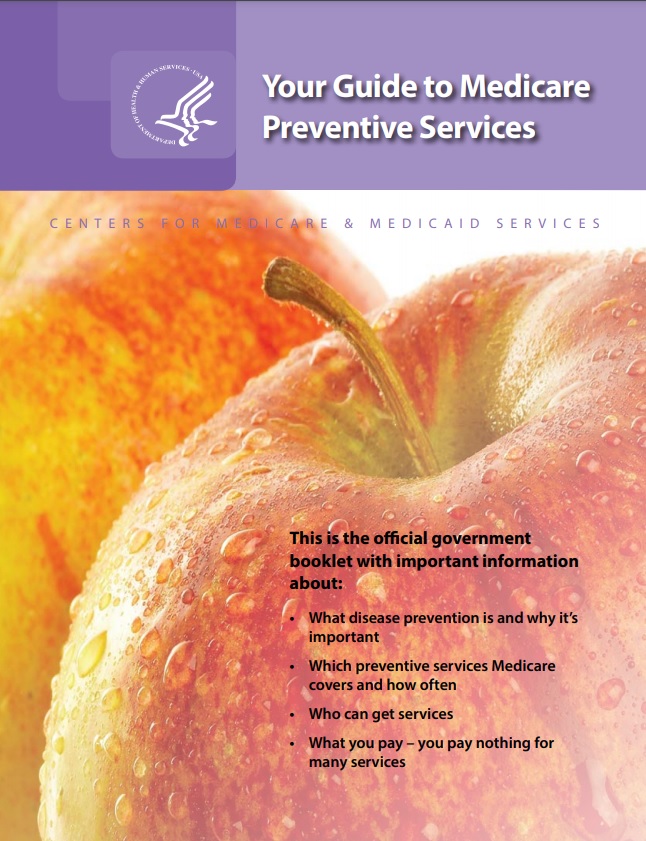#ACA / ObamaCare Preventative Care & Wellness Programs
- Here’s a Plain English List! from HealthCare.Gov of preventative services you can get with NO DEDUCTIBLE.
- However, if Preventive care is given during an Office Visit or as an outpatient or vice versa Covered CA it might not be covered under the Preventative Care section of your policy Check with your doctor. Preventative Screenings and other services are covered with no deductible for adults and children with no current symptoms or history of a health problem. Specimen Policy Page 92
- If one has history or symptoms, then it’s covered under the diagnostic benefit Page 74 Subject to Co-Pays & the Deductible. Maintenance of a known problem, like those listed below as common risk factors, is certainly preventative, but isn’t defined that way under ObamaCare and is subject to the regular co-pays and deductibles. Peter Lee of Covered CA thinks that’s a BIG problem, read more by on the link. Annual physicals may not be a benefit LA Times 8.2.2016
- Ouch. That ‘Free’ Annual Checkup Might Cost You. Here’s Why
- Preventive care doctor visits are free, but if you bring up a health concern during the appointment, the visit may turn into a traditional doctor visit. That means you would have to pay a copay. The same could go for any tests that lead to more treatment or follow-up visits. Learn More Covered CA *
- Ways to get preventative care covered if doctor says yes, but Insurance Company says no. NPR.org *
- If one has history or symptoms, then it’s covered under the diagnostic benefit Page 74 Subject to Co-Pays & the Deductible. Maintenance of a known problem, like those listed below as common risk factors, is certainly preventative, but isn’t defined that way under ObamaCare and is subject to the regular co-pays and deductibles. Peter Lee of Covered CA thinks that’s a BIG problem, read more by on the link. Annual physicals may not be a benefit LA Times 8.2.2016
- Health Care Reform hopes to save premium dollars as 20% of Employee Health Care Spending is on these common risk factors: health net pulse.com/
- stress
- depression
- high blood pressure
- high cholesterol
- obesity
- excessive alcohol use
- tobacco use
- US Preventative Services Task Force – Consumer Information for tons of different problems
Resources & Links
- A federal appeals court in Texas on 6.21.2024 (read courts actual ruling) found unconstitutional a key component of the Affordable Care Act that grants a health task force the effective authority to require that insurers both cover an array of preventive health interventions and screenings and refrain from imposing out-of-pocket costs for them. NBC News *
- SCOTUS to review ACA preventive services mandate 1/11/2025
- Appeals Court Hears Appeal Over Obamacare’s Preventive Care Mandate KFF 3.5.2024
- The Texas ruling of March 30, 2023 (KFF Summary) * KFF update 4.7.2023 * doesn’t count in CA. Please don’t take blanket summaries & hype as gospel. Read the sources links
- California law that requires all health plans regulated by the State of California to cover the same necessary preventive services at no cost to the patient, consumers enrolled in plans offered through Covered California will continue to have access to these critical health care services without disruption. Covered CA Email dated 4.6.2023 * Joint Statement *
- FAQ finding doctors, labs and hospitals, when there’s confusion
All our Health plans are Guaranteed Issue with No Pre X Clause
Instant Quote & Subsidy #Calculation
There is No charge for our complementary services, we are paid by the Insurance Company.
- Our Quote Engine Takes all the complexity out of using pencil and paper to figure out the premiums per the Obamacare/ACA rules under CFR §1.36B-3 *
- We are authorized Brokers for Dental, Vision & Covered CA get instant quotes direct and in Covered CA with subsidy calculation for:
- Watch our 10 minute VIDEO that explains everything about getting a quote
Contact Us - Ask Questions - Get More Information - Schedule a Zoom Meeting
[email protected]
By submitting the information below , you are agreeing to be contacted by Steve Shorr a Licensed Sales Agent by email, texting or Zoom to discuss Medicare or other Insurance Plans as relevant to your inquiry. This is a solicitation for Insurance
Trump Make American Healthy
#Nutrition & weight control
Visit our new & Updated webpage
Trump Make America Healthy Again
- RFK Jr.’s MAHA Movement Has Picked Up Steam in Statehouses. Here’s What To Expect in 2026 Kff.org January 2026
- The Supreme Court has determined that health insurance plans under the Affordable Care Act (ACA), also known as Obamacare, must continue to fully cover preventative services, including cancer screenings, HIV prevention medication, and mental health counseling, without co-pays or deductibles. Forbes *
- Nearly half of the U.S. population is pre-diabetic or has type-2 diabetes. Every month, diabetes causes 13,000 new amputations, 5,000 new cases of kidney failure and up to 2,000 new cases of blindness in our country. In 1960, approximately 13 percent of American adults were obese. Now, more than 40 percent of Americans are obese, and more than 70 percent are either obese or overweight.
- Even more shockingly, one-quarter of our teenagers today are pre-diabetic or have type-2 diabetes, and obesity is the leading medical reason that 71 percent of young Americans are disqualified from military service. Learn More >>> The Hill 11/2024 * Listing of the 6 Points Beckers Hospital Review 12/2024 *
Medicare Preventative Services
Medicare #Preventative Services & Wellness Visit Publication # 10110
Visit our main webpage on preventative services
More on Medicare Preventative Services
Video’s

- Preventative Benefits VIDEO
- Vaccines VIDEO
- Are All Vaccines Fully Covered by Medicare and Medicaid? NCOA.org *
- Why it’s harder to get COVID Vaccine Commonwealth Fund *
- Stroke Awareness Month VIDEO
- Heart Disease – Screenings under Part B
- Video on Glacoma
- Silver Sneakers
- Review your potential risk for depression and your level of safety.
- Offer to talk with you about creating advance directives, legal documents that allow you to put in writing what kind of health care you would want if you were too ill to speak for yourself.
- Learn more than you ever wanted to know about HRA – Health Risk Assessments
- Annual wellness visits providing Personalized Prevention Plan Services: Conditions for and limitations on coverage READ MORE 42 CFR § 410.15
- Medicare Health Outcome Survey
- Medicare does not cover an annual physical exam – see 15 pages from Medicare to explain the difference. “It’s very important that someone, when they call to make an appointment, uses those magic words, ‘annual wellness visit,’”An annual physical typically involves an exam by a doctor along with bloodwork or other tests. The annual wellness visit generally doesn’t include a physical exam, except to check routine measurements such as height, weight and blood pressure. CA Healthline.org *
- Medicare & You: Flu Prevention VIDEO
- Health Risk Assessment
- Our Webpage on Preventative Care – Wellness Visit – Medicare
- JFK Inaugural Address
- President Kennedy – Help our country – Not just get free benefits
Ask Not, what your country can do for you
What can you do for your country - Medicare’s Preventative Benefits
- Kaiser VIDEO Play List
- Kaiser Thrive Little Miss Sunshine
See also programs that might be offered by Medi Gap or Medicare Advantage Carriers
- Medi Gap – Supplement Plans
- Medicare Advantage Plans – Part C
Mammogram, Bone Density & Osteoporosis
Blue Shield of California Authorized Agent - Broker
![]()
Preventative Care
Bone Density Osteoporosis
Medicare covers bone mass measurements to see if you’re at risk for broken bones due to osteoporosis. Osteoporosis is a disease in which your bones become weak and brittle. In general, the lower your bone density, the higher your risk for a fracture.
Medicare Coverage of #Cancer Treatment # 11931
- Our FAQ Cancer Experimental Rx
- 15 Cancer Symptoms WebMd.com *
- Some early forms of breast cancer may not need treatment Study says Time.com *
- Visit our webpage on cancer
Resources & Links
MLN Medicare Preventive Services for Professionals
- Medline Plus Trusted Health Information

- Merck Manual – Home Edition
- health.gov/my health finder
Vision
How often are Eye exams covered?
Medicare doesn’t cover routine eye exams (sometimes called “eye refractions”) for eyeglasses or contact lenses. Medicare Part B (Medical Insurance) covers some preventive and diagnostic eye exams:
- Yearly eye exam
- Glaucoma tests
- Macular degeneration
- Medicare Part B (Medical Insurance) covers a yearly eye exam for diabetic retinopathy
- ICD 10
- Web MD
by an eye doctor who’s legally allowed to do the test in your state.
Who’s eligible?
All people with Part B who have diabetes are covered.
Your costs in Original Medicare
You pay 20% of the Medicare-approved amount for the doctor’s services, and the Part B deductible applies. In a hospital outpatient setting, you pay a copayment.
Note
To find out how much your specific test, item, or service will cost, talk to your doctor or other health care provider. The specific amount you’ll owe may depend on several things, like other insurance you may have, how much your doctor charges, whether your doctor accepts assignment, the type of facility, and the location where you get your test, item, or service. medicare.gov yearly-eye-exam
- cms.gov/VisionServices_FactSheet
- FAQs / Ask Us a Question
- ICD billing codes
- 92012 Ophthalmological services: medical examination and evaluation, with initiation or continuation of diagnostic and treatment program; intermediate, established patient
- 92083 — extended examination (eg, Goldmann visual fields with at least 3 isopters plotted and static determination within the central 30 degrees, or quantitative, automated threshold perimetry, Octopus programs G-1, 32 or 42, Humphrey visual field analyzer full threshold programs 30-2, 24-2, or 30/60-2).
- 92083 — extended examination (eg, Goldmann visual fields with at least 3 isopters plotted and static determination within the central 30 degrees, or quantitative, automated threshold perimetry, Octopus programs G-1, 32 or 42, Humphrey visual field analyzer full threshold programs 30-2, 24-2, or 30/60-2).
Dental For #Everyone,
has an excellent website with full brochures, Instant online quoting and enrollment
- Dental for Everyone includes quotes from
- Careington Discount Plan
- Bright Benefits
- Renaissance Dental
- Delta Dental
- AmFirst
- One of our colleagues on how Dental for Everyone Works.
- Some of our webpages on dental
- VSP Vision
Child & Related Pages – Site Map
Medi-Cal Share of Cost
If you are low income you might check out LIS – Low Income Subsidy – Extra Help to pay the Rx costs that are not covered. LIS may also pay your Part D and Part B premiums and you might also qualify for Medi-Cal.







https://www.commonwealthfund.org/blog/2026/kids-lose-when-vaccine-coverage-rules-are-unclear